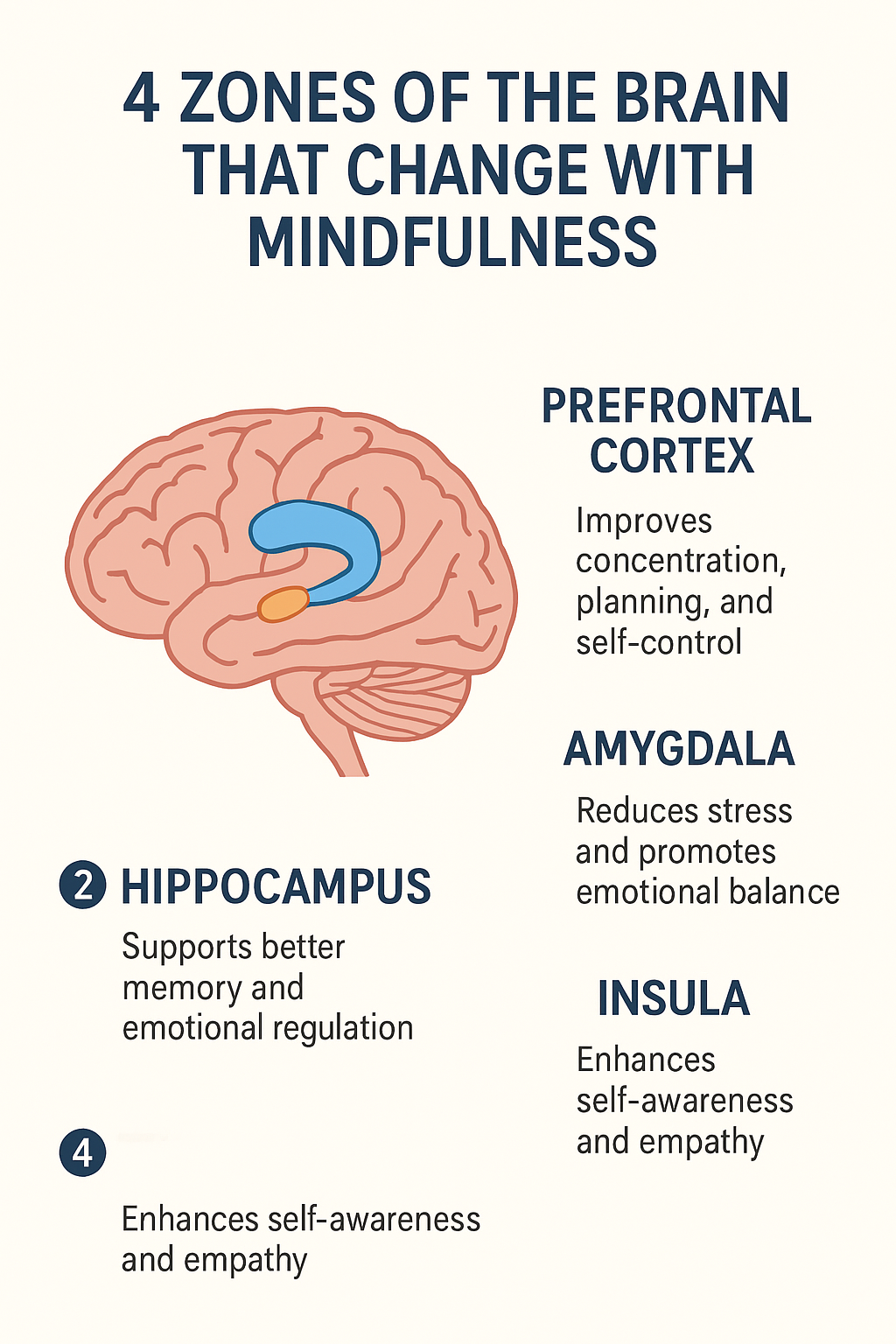For years, mindfulness was seen as a spiritual or relaxation technique. Today, science confirms that mindful attention produces real, measurable changes in the brain. Thanks to functional neuroimaging, we now know that mindfulness improves attention, regulates emotions, and strengthens mental resilience.
What Science Says About Mindfulness
Mindfulness means paying attention to the present moment with curiosity and without judgment. From a neuroscientific perspective, this practice activates and balances various neural networks related to attention, memory, and emotional regulation.
In other words, when you train your mind, you’re also training your brain.
Brain Areas That Change With Mindfulness
Research by scientists such as Sara Lazar (Harvard University), Richard Davidson (University of Wisconsin), and Judson Brewer (Brown University) shows that regular mindfulness practice can modify the structure and function of different brain regions:
- Prefrontal Cortex: Becomes more active, improving concentration, planning, and self-control.
- Amygdala: its reactivity decreases, leading to less stress and greater emotional balance.
Disminuye su reactividad, lo que se traduce en menos estrés y mayor calma emocional. - Hippocampus: Increases in density, supporting better memory and emotional regulation.
and - Hippocampus: increases in density, supporting better memory and emotional regulation

Brain Plasticity: The Power to Change From Within
Neuroplasticity is the brain’s ability to reorganize itself and create new neural connections throughout life. This means that each mindful moment is an opportunity to retrain your mind.
Studies have shown that just eight weeks of consistent practice can produce measurable changes in brain structure.
Proven Benefits of Mindfulness on the Brain
- Improved focus and mental clarity
- Reduced stress and anxiety
- Higher emotional regulation
- Increased empathy and compassion
- A greater sense of balance and well- being
A Simple Exercise to Start Today
Try this short mindfulness practice:
- Sit comfortably and close your eyes.
- Bring your attention to your breath.
- Notice the air moving in and out without trying to change it.
- When distractions arise, gently return to the present moment.
- Practice for 5 minutes a day — your brain will already begin to change.
Conclusion
The neuroscience of mindfulness shows that this practice not only calms the mind — it transforms the brain. Each conscious breath strengthens the areas linked to calmness, clarity, and empathy.
Practicing mindfulness is an investment in your mental, emotional, and brain health.











